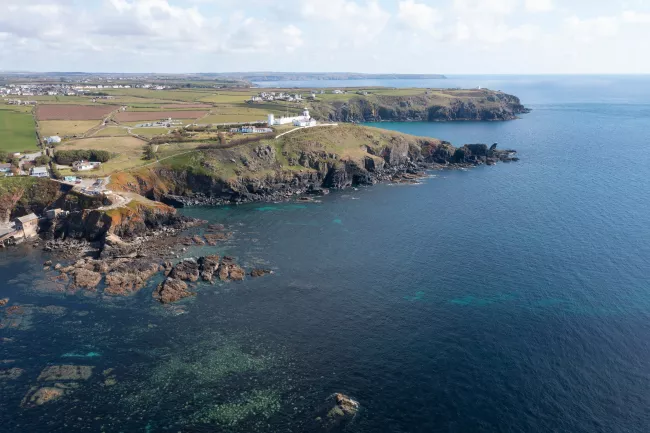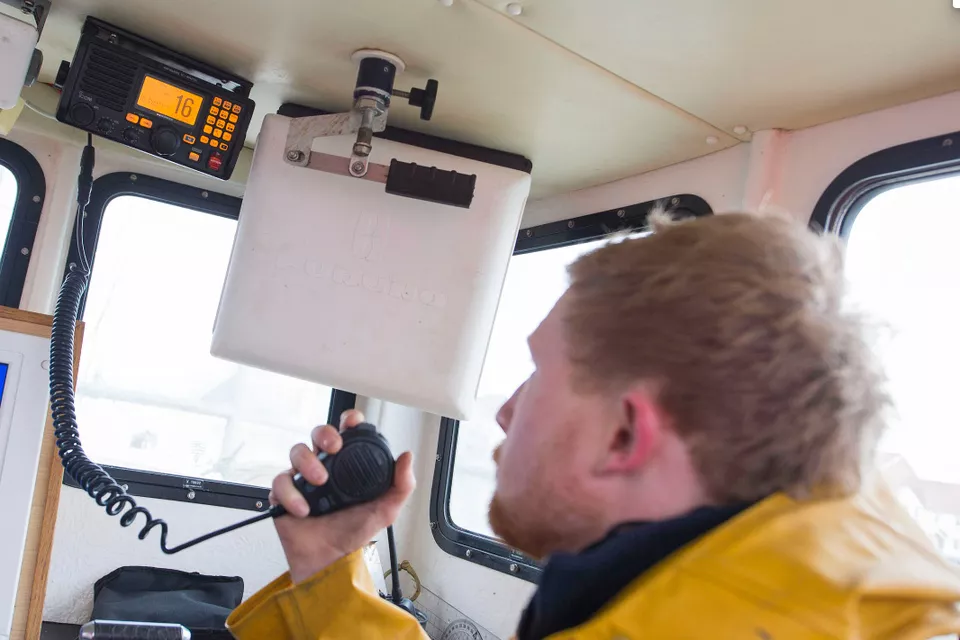Those were the words of lifelong fisherman Phil Burgess (67) who, when his boat went under off the rocky coast of Cornwall, was rescued within minutes thanks to his lifejacket, distress mini-flares, and personal locator beacon (PLB).
He had been working lobster pots off Lizard Point on 23 June when his small vessel, the Ida-May, was suddenly swamped and quickly sank, leaving just the bow bobbing above the waves.
Phil recalled: “I was hauling quite happily thinking about lobsters, then suddenly the pot came up fast and pulled me over and the next thing I was in the water.
“It was way too far to swim from there. There was a lot of chop and I swallowed a bit of water. Even with the effort of swimming, I would have got cold. Without that kit I would not be here.
“I thought after a couple of minutes: well, I can’t stay here all day – I had better get some attention.”
With the lifejacket holding him above the surface and personal locator device broadcasting his location, Phil grabbed the mini-flares stashed securely in his pockets and fired them into the sky.
The bright red signals at regular intervals were spotted along the coast, and 999 calls from the public started flooding into the Maritime Rescue Coordination Centre at Falmouth.
Just 20 minutes after the alert was registered at around 9.10am, the RNLI lifeboat from Lizard found Phil, who had calmly stayed by his boat, and winched him aboard.
Said Phil: “That’s the worst bit – when you’re out there not knowing if anyone has seen. When I could see the lifeboat coming, I was quite relieved.”
Porthoustock and Mullion coastguard rescue teams headed to the lifeboat station and were waiting with paramedics from South Western Ambulance Service when Phil arrived: wet, cold and minus his lobsters but safe and well.
For Phil, being rescued was the reverse of what he was used to, having served for more than 40 years with the very RNLI station whose crew saved him.
He said: “I felt really relieved and grateful to the lifeboat crew. I have always been on the other end of the rescue looking down from the flying bridge of the lifeboat, not looking up.”
It was the experiences from his career as a volunteer that prevented him from drowning, he believes – including the memory of two local fisherman who did not make it back years ago.
He added: “Since then I have always worn lifejackets and with the RNLI we always use them. I hear a lot of rubbish about not being able to work while wearing them, but you can.
“The lifejacket is only half the job; you have got to attract attention to yourself too and that’s why you need flares. You have got to have some way of showing where you are.
“If you can get on a survival course, I would strongly recommend it. The flares I used are called mini-flares. The total cost of the PLB and flares was around £280 – a small price to pay for your life.”
Phil has since bought a lifejacket with stronger flotation – but found it harder to immediately replace his mini-flares. The news of his actions had spread so wide that when he went to buy new ones, they had sold out!
Margaret Howell, from HM Coastguard, commented: “The fact Phil was wearing a lifejacket, had flares and activated his PLB made it far quicker for him to be located and rescued.
“Wearing a lifejacket saves lives and this fisherman did all the right things in that regard.”
Doug Smith, Principal Marine Surveyor with the Maritime and Coastguard Agency, added: “We can’t stress enough how important it is to make sure your vessel is fully equipped in case of an emergency.
“This fisherman was able to raise the alarm really quickly with distress flares, and his personal locator beacon helped pinpoint exactly where he was.”
Today Phil is still fishing off Lizard Point in Ida-May. She was righted by the lifeboat and towed back to shore where, once dried out and checked, she was ready again – to find the lobsters that got away.
Phil concluded: “I thought it was never going to happen to me – I have been fishing all my life and I have never had an accident before. But if it can happen to me, it can happen to anybody.”


